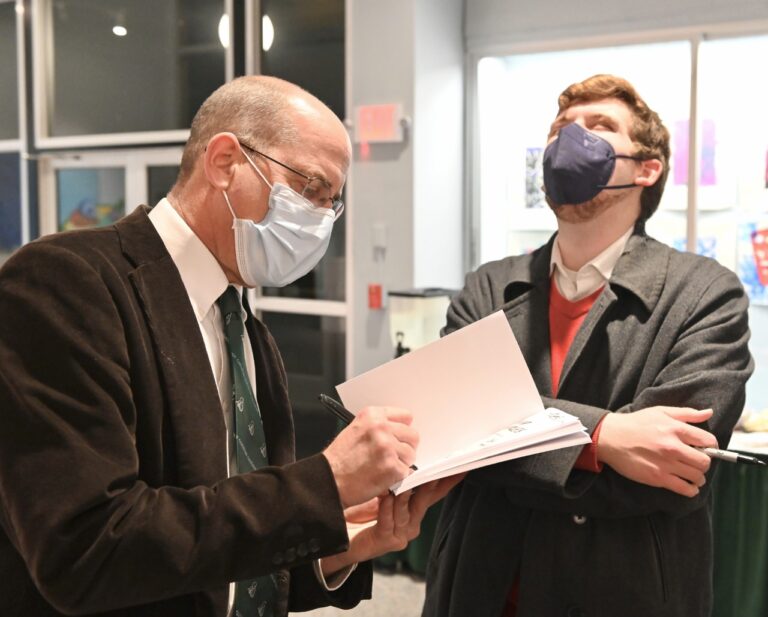Preparation is key for LSAT
The Law School Admission Test, affectionately called the LSAT, is quite the challenging exam. It was not until I began learning about the law school application process that I understood how difficult it is, or even what it was like.
This three-hour long test consists of short to medium length passages with questions meant to test one’s logical and comprehensive skills. The test scores range anywhere from 120-180, and according to the Law School Admissions Council, in 2009, only .1% of almost 145,000 test takers scored a perfect 180. The questions, or puzzles, depending on how you see them, are not easy, especially if you have never been exposed to them or taken any classes in logic or deductive reasoning.
Rich Clark, program coordinator of the Political Science major, had great input as an advisor to students coming from all backgrounds who want to take the test.
“It is about preparing, that’s half of being a lawyer. Give yourself a year, take the summer between junior and senior year to study and then take the test in the fall,” he said.
Due to the nature of the exam and the skills that need to be developed, the preparation for it is very much like a marathon. When he said a year, he meant a year. Clark explained that the information is already in the test, it is just a matter of knowing how to pull out the necessary factors to answer the questions. Hint, that’s the tricky part.
“The students that do best don’t really need my help. You learn strategies for doing the logic puzzles …The students who do well already figured that out,” he said.
The strategies are very important, but the mindset is also half of the work.
“If you are studying for it and you find it punishing, think about that, the ones who do well think it’s fun, you do better if you’re enjoying it,” he said.
In my case, learning the strategies has been fun the more I study, but there are other obstacles that make it hard to stay disciplined.
As an Acting/Directing major, I don’t have many other people around me who are following the same track. Having a group or a club, like the Pre-Law Club on campus, to motivate you can be very helpful, especially in more isolating conditions.
Willow Hogan, an Early College student in her third year in the 3-2 Pre-Law program with the Vermont Law School, took the test during the lockdown.
The COVID-19 pandemic forced the entire world to go online, including the LSAT testing, which would typically be proctored with the lowest chance of family members interrupting you mid test.
“If someone walks into the place where you’re doing your testing online it has to be reviewed… It was definitely a weird experience online, it’s hard to get into the headspace of “this is a big test,” she said.
When talking about the program, I related with Hogan on the pressure of leaving Castleton in senior year to begin law school two years younger than the students in your class, something I ultimately decided not to do due to my acting major.
“My parents also pushed me because I was home for most of the studying, also the motivation to not take it twice,” she said. Hogan followed by explaining that the test costs the student $200 to take.
She added that Katie Merrill, the dean of Students at Vermont Law School, and Clark were helpful as well in motivating her during the process, especially with everything being remote.
Despite the isolating circumstances and the demands of the studying, Hogan benefitted from her efforts. “I aimed for a 155 and I got a 153, I was very pleased,” she said.
Khan Academy provides an effective program that allows students to set up their own studying schedule leading up to the test, a tool we used and are using to prepare.
“The practice tests are important, taking them as if they are the test without breaks and without help is really important, and remember it won’t look the same because the format is not the same as it is on Khan Academy,” she said.
The time elapsed is also shown while the test is going, adding another stress factor.
Although it is intimidating, Hogan had great advice for students like myself who are trying to keep up.
“My advice would be to study, but don’t fry your brain. Do plan out your days, but don’t beat yourself up about missing a day,” she said.








